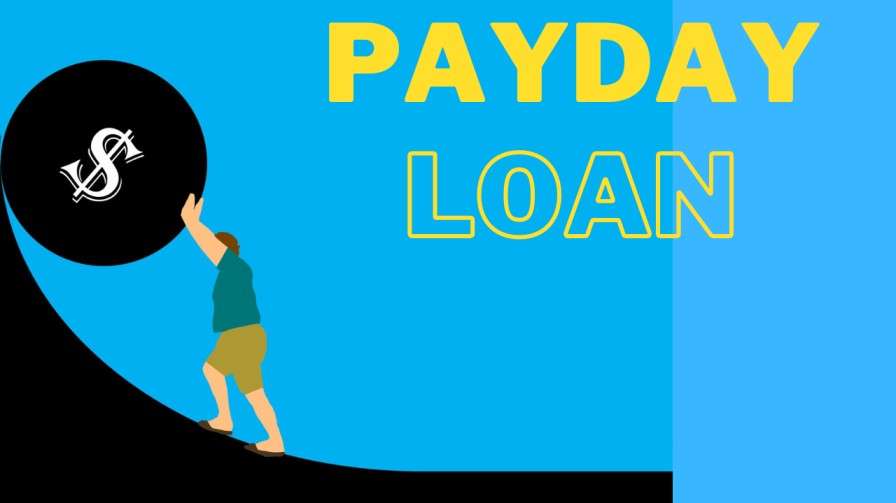Here we will discuss about Payday Loan.
Payday loans are short-term unsecured loans with high interest rates.
They are also known as payday advances, salary loans, payroll loans, small dollar loans, and cash advance loans.
When a borrower takes out a payday loan, the phrase “payday” refers to the situation where they write the lender a postdated check for their payday wage and they then give them some cash in exchange.
In everyday speech, however, the idea also holds true whether or not loan repayment is contingent on a borrower’s paycheck.
The loans are also occasionally referred to as “cash advances,” however the phrase can also apply to money given in exchange for a pre-established line of credit, such a credit card.
Payday loan laws varied significantly between nations, and under federal systems, between various states or provinces.
Some countries place restrictions on the annual percentage rate (APR) that any lender, including payday lenders, may charge in order to prevent usury (unreasonable and excessive rates of interest).
Some jurisdictions have very few restrictions on payday lenders, while others have outright bans on the practice.

What Is a Payday Loan?
With a payday loan, a lender will issue high-interest credit based on your income for a brief period of time.
Usually, a portion of your next paycheck serves as its principal.
High interest rates are charged on payday loans for short-term, instant credit.
Additionally, they are known as check advance loans or cash advance loans.
The loan process of Payday Loan?
The fundamental loan procedure entails a lender giving a borrower a brief, unsecured loan that must be paid back on their subsequent payday.
Most payday lenders need some proof of job or income (pay stubs and bank records),
while one source claims that others do not verify income or perform credit checks.
Franchises and individual businesses each have their own underwriting standards.
In the conventional retail model, borrowers go to a business that offers payday loans to obtain a short cash advance, with full repayment due when they receive their next salary.
The borrower sends the lender a postdated check for the total loan amount plus costs.
The Borrower shall return to the Store to personally repay the Loan on the Maturity Date.
The lender may redeem the check if the borrower does not personally repay the loan.
The borrower may now have to pay a bounced check fee from their bank on top of the costs of the loan, and the loan may incur additional penalties or a higher interest rate (or both) as a result of the failure to pay if the account does not have enough money to cover the check.
Consumers fill out an online loan application for online payday loans, a relatively recent innovation (or in some instances via fax, especially where documentation is required).
The loan repayment and/or finance charge are then electronically withheld on the borrower’s following payday after the funds have been deposited via direct deposit into the borrower’s account.
Pricing structure of payday loans:
According to the payday loan industry, using traditional interest rates for loans with smaller sums and shorter terms would not be profitable.
For instance, a $100 loan for one week at a 20% APR (compounded weekly) would only return 38 cents in interest, which would not cover the costs of loan processing.
Payday loan prices often increased, according to research, and these changes were “consistent with implicit cooperation aided by pricing focal points.”
However, proponents of consumer rights and other specialists contend that payday loans seem to be a perfect example of a market failure.
Pricing varies in a perfect market with rival vendors and purchasers trying to conduct reasonable trades based on the market’s capacity.
Since loans cannot be trademarked, payday lenders have no motivation to price their products competitively.
Therefore, if a lender decides to innovate and lower costs for borrowers in order to gain a greater market share, the rival lenders would immediately follow suit, negating the effect.
All payday lenders in the market charge at or very close to the highest fees and rates permitted by local legislation, among other reasons.
Alternatives to payday loans:
Most customers of payday loans have other choices.
Pawn shops, credit union loans that have stricter requirements and lower interest rates,
but take longer to get approved for, employee access to earned but unpaid wages, credit payment plans, paycheck cash advances from employers (also known as “advance on salary”), auto pawn loans.
Bank overdraft protection, cash advances from credit cards, emergency community assistance plans, small consumer loans, instalment loans, and direct loans from family or friends are a few examples.
In their 2013 study on how people repay payday loans, the Pew Charitable Trusts discovered that many borrowers took out a payday loan to avoid one of these options only to utilise that choice to pay back the payday loan.
An alternative to payday loans for people who own their own cars is an auto title loan since it uses the equity in the car as credit rather than the borrower’s past payment and work history.
The Asset Recovery Kit (ARK) programme of the Pentagon Federal Credit Union Foundation (PenFed Foundation) is another option.
Their postal networks frequently offer simple banking services as well.
Use of Payday Loan:
Payday loans are a sort of unsecured personal loan since they have high interest rates and no need for collateral.
These loans could be regarded as predatory lending since they contain exorbitant interest rates, don’t take a borrower’s capacity to pay back into account, and have unstated terms that charge borrowers additional costs.
Therefore, they may put consumers in a debt trap.
If you’re thinking about getting a payday loan, you might want to start by considering safer personal loan options.
Yes. Although it’s not always necessary to have a bank account to borrow money, lenders who don’t demand it typically charge high interest rates.
Payday loans are typically unsecured.
As much as 780% in annual percentage rate (APR), with an average loan costing close to 400%, are the rates that payday lenders charge.
The majority of states have usury laws that cap interest rates at 5% to 30%. Payday lenders, however, are excluded from this rule, therefore their excessive interest rates are permitted.
Read also:
